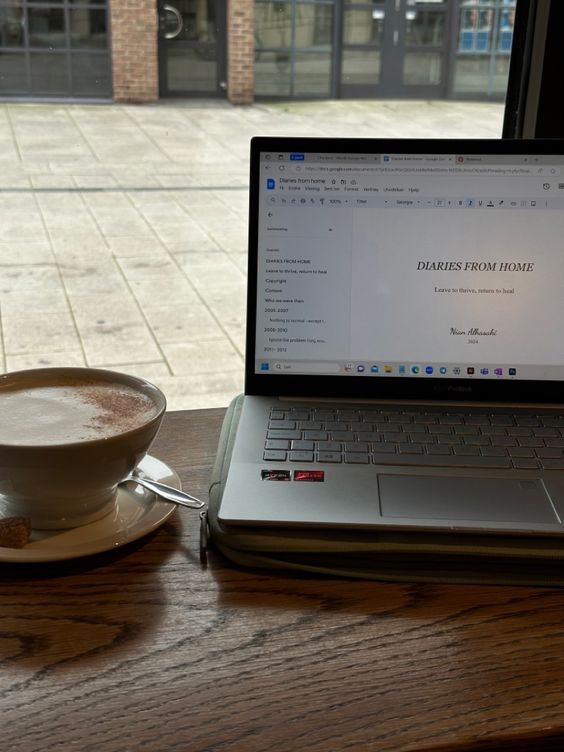Now, I’m all about development. You put me in a conversation on how the world and we are changing, you’d never see the light of day again. Okay, that’s a little bit of an exaggeration—we all run out of mental capacity very quickly so that’s not at all possible. Want to know what is possible? Learning. Crazy, I know, but I’m not talking about me. No, no I’m referring to teachers. It’s weird, you‘d think teachers wouldn’t have to learn anything—but I can’t be the only one who thinks teachers need to have a crash course on the new world. Kids are not the same as they used to be, and neither are the rules. Some teachers just keep their head in the sand.
Gina Cervetti: Literacy
Cervetti makes a good point in their work titled “Multiple Literacies, New Literacies, and Teacher Education” about this. Learning is not just for student’s, but for the people who teach them. Sadly, these teachers—well, most of them—are a little old fashioned. The others are just beginning their journey, but are starting off on the wrong foot. So, learning and incorporating what they learned. What exactly are they learning about? Well, modern society and technology, of course. Technology is constantly changing and adapting, so it’s hard to keep up with. A lot of the time, you’ll see teachers go completely without as if it has personally offended them. Technology has changed how we communicate, work, and even just live our lives, so trying to integrate something like that into your teachings for students may seem like a waste of time. Except, it’s the opposite.
Kids feel connected through technology. In their personal lives, technology is what they live on, so being deprived of learning through a source they are so used to creates this strain between them and their school lives. In modern literacy, and even just society, students should include their personal lives into something so far away from them. When that happens, it actually does wonders. Literacy in schools is a very narrow subject as normally you would only follow exactly what your teacher tells you to do with no other distractions.
What Cervetti is trying to convey in their work, is to let kids essentially be kids. You create a connection through trust, and bringing personal information into play will get you right to step one. So, teachers should learn how to broaden their literacies by observing and interviewing their students on their lives. It will make the students feel validated and safe, as well as willing to participate in class. Which is every teacher’s dream.
James Paul Gee: Discourse
Gee, in his work “Literacy, Discourse, and Linguistics: Introduction”, also has a few things to say. Literacy is learning to observe and become included in the new world, and a term for this world would be known as Discourses. I know, it doesn’t sound like a word that would mean good things, but it’s actually super interesting. Kind of like Cervetti where they suggest learning through a program/in person, Discourse can also be learned through someone who has had experience in the field. They have watched the world change and know a thing or two about living through it, which makes them perfect teachers to someone who has never experienced Discourse. Identity, language and communication as a whole can be found from a home life, while things like slang or other social advice can be found by experience in the outside world.
There are four types of Discourse—two being what was described already. Primary—what we learn from home—and Secondary—what we learn from everyone else. Think of it like this. A child goes to school and is named a ‘troublemaker’ based on his actions when he’s around his friends and teachers—what happens when we look deeper? We find that he’s smart and acts entirely differently when at home. Environments are everything to a kid, and they learn the smallest things just as fast as anything else—it’s a ‘don’t judge a book by its cover’ situation. This is how we learn too. We always want to make someone feel included, so we go for the literacy tactic by learning about them and their personal life.
The other two types are known as Dominant (D) and Non-dominant (d). We can use the same example but in reverse from before. An adult who works at an office job as a CEO should never joke around and always stay on top of everyone for doing their work (Personally, I think their ties are too tight), which is a version of Dominant discourse. However, when they get home they are laid back and have the best home life with their kids and significant others—Non-dominant. Of course, not every life is the same but do you see what I mean? There is always a front and back to a coin that will never have the same face.
Conclusion:
Do you believe me now? I told you I could go on and on about a topic like this. We never know what is going to happen in the next second, but there is always something you can start with. Learning. It’s never too late to realize that you are not stuck in time—that the world around you is going to change without your knowledge. You’ll just have to take that train and let it lead you there.




Leave a Reply